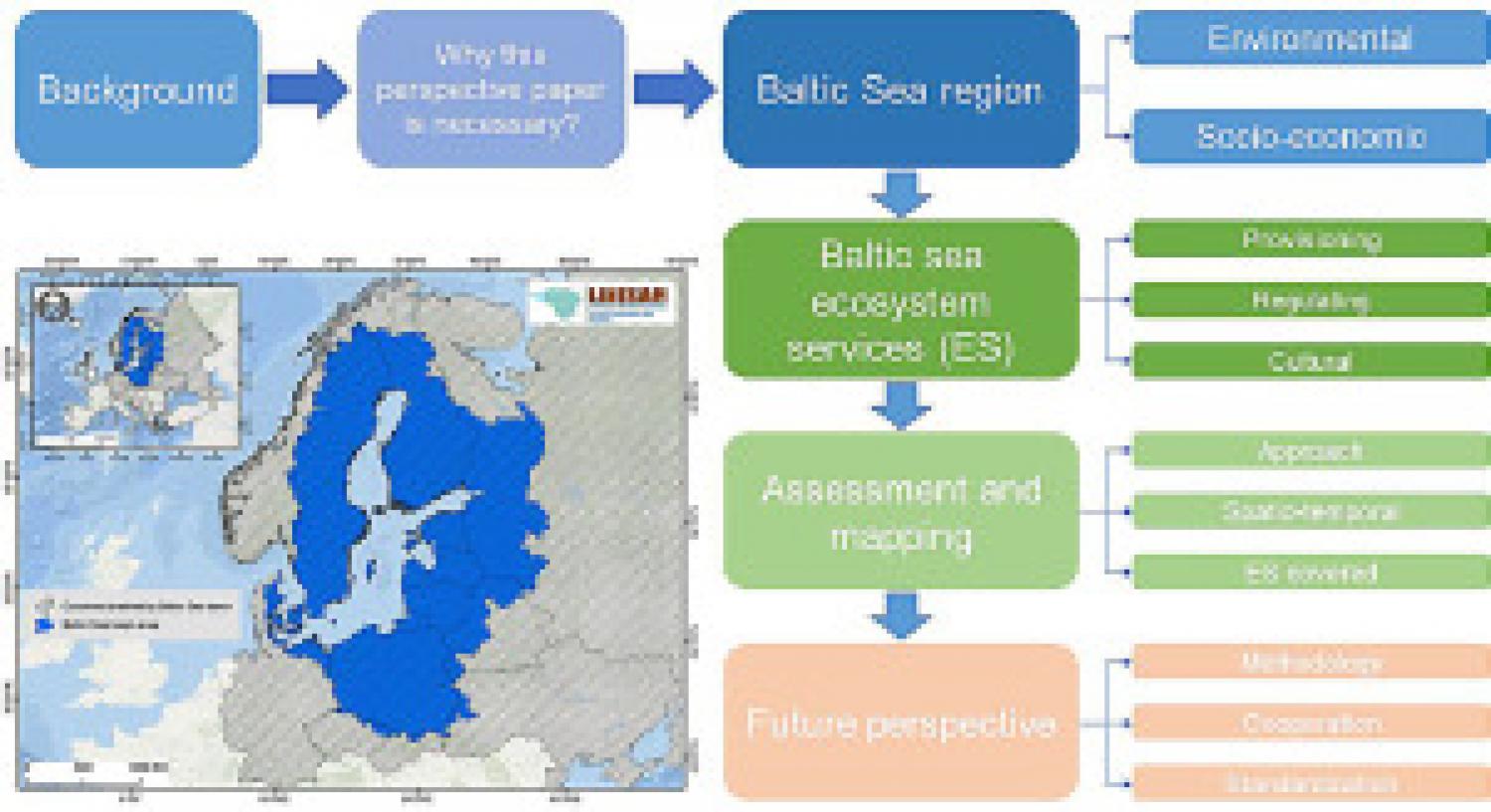
Elsevier, Geography and Sustainability, Volume 1, December 2020
The Baltic Sea is essential for marine ecosystem services (MES) provision and the region's socio-economic dynamics. It is considered one of the busiest and most polluted regional seas in Europe. In recent years a collective effort in enforcing European and regional environmental policies and directives (e.g. Water Framework Directive 2000/60/EC, 2000; Marine Strategy Framework Directive 2008/56/EC, 2008; Maritime Spatial Planning Directive 2014/89/EU, 2014) has been carried out. Ecosystem Services assessment and mapping is integrated into these directives. An increasing number of scientific studies, projects, and other works were developed in this context, generating a vast body of knowledge. Despite all efforts to improve the Baltic Sea's environmental status, the targets established were not fulfilled. It is also important to analyze if current methodological approaches for assessing and mapping MES are robust enough to provide the needed results. This perspective paper analyses the status of assessment and mapping methodologies. The results showed that most of the studies were focused on qualitative assessments, with limited validation and reliability. Although the number of robust and quantitative works is increasing, more are needed. It is vital to carry out quantitative assessments to inform decision-makers better and standardize MES practices across the Baltic Sea.
